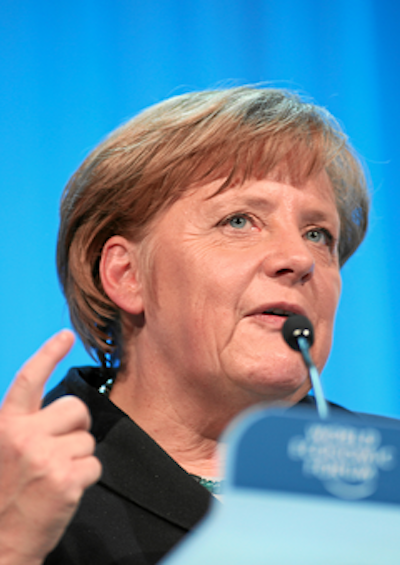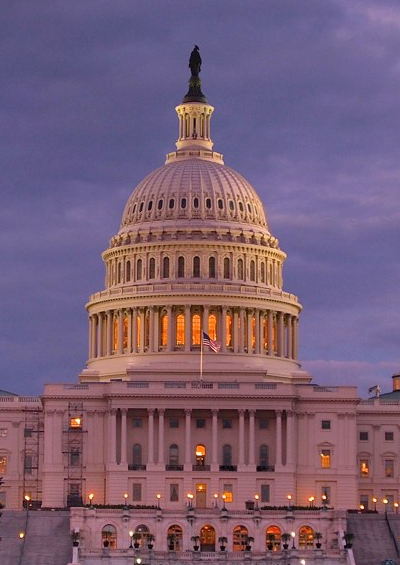Germany: Merz in Pole Position
How is the race to succeed Angela Merkel at the helm of the CDU, Germany’s largest party, shaping up?
November 2, 2018

The race to succeed Angela Merkel at the helm of the CDU party seems to have narrowed to two top candidates and a runner-up. The latter would still have a good chance if one of the two favourites stumbles.
The two frontrunners are the CDU’s current general secretary Annegret Kramp-Karrenbauer, sometimes dubbed “mini-Merkel,“ and Merkel‘s erstwhile rival Friedrich Merz.
A centrist positioning
As the surprise candidate, Merz currently seems to have momentum on his side. Having left frontline politics to pursue a career in business 14 years ago, the somewhat charismatic Merz has raised his chances in two ways.
First, he suggested that he harbors no grudge against Merkel who had elbowed him aside in 2002, and asserted that, as CDU leader, he could work with Merkel as chancellor.
Second, Merz wants the German government to take Macron‘s and European Commission proposals for European reforms “seriously“ and come up with a clearer German response to these ideas.
To some extent, he has thus dispelled fears that a vote for him as new party chairman would amount to a straight vote of “no confidence“ in Merkel as chancellor and that he would not be sufficiently committed to strengthening the cohesion of Europe.
That Merz can now look back at a successful business career, including a position as head of the supervisory board of a major asset management firm, will probably stir some controversy in Germany, but probably more in left-leaning circles than the CDU rank and file.
Of course, with five weeks to go until the decisive CDU party convention on December 7th and 8th, the race remains open.
Merz vs. Merkel: Differences of style not substance?
In contrast to Annegret Kramp-Karrenbauer, who by and large represents and pursues the same policies as Merkel, Merz seems to represent more the pre-Merkel CDU. He is widely seen as more conservative on social issues, less liberal on migration and pro-business.
His signature proposal once was a radical tax simplification (“tax return on a coaster”). He also remains a staunch pro-United States “Atlanticist.“
However, it is easy to exaggerate the potential policy differences between him and Merkel. Comparing ideas Merz championed as an active politician some 10 years ago to Merkel‘s policies today misses the evolution of circumstances — and of the CDU — during this period. 10-15 years ago, Merkel’s own views were very close to the ones now still ascribed to Merz.
If Merz were to lead today‘s modernized CDU in an economically thriving country that has more appetite for additional welfare spending than for pro-growth supply-side reforms, his actual contributions to the policy debate may not be all that different from Merkel‘s current policies.
As a new face at the top, Merz may help to revive the fortunes of the CDU. He is not associated in any way with Merkel’s controversial decisions during the refugee crisis of 2015. His more direct style of communication would also go down well with many conservatives.
However, the difference to Merkel would probably show up more in style than in genuine major shifts in policy. The need to convince a coalition partner and get new policies through both houses of parliament constrains Merz’s leeway for any significant policy changes.
Kramp-Karrenbauer: Merkel’s favorite
If Kramp-Karrenbauer wins the party convention vote on December 7th and 8th, she would almost certainly work smoothly with Merkel as chancellor. If Merz becomes the new CDU leader, Merkel would also remain chancellor with an intention to serve out her full term until late 2021.
However, the risk that Merz would try to replace her as chancellor as well within one year could be around 25%.
Separately, Merkel faces the risk that her coalition partner, the badly battered SPD, walks out of her coalition, possibly upon the scheduled mid-term review of the coalition agreement in late 2019.
That scenario currently has an almost 50% probability. The risk would rise if Merz becomes CDU party chairman, as the SPD may find it more difficult to work with the more outspoken Merz than with Kramp-Karrenbauer.
The third candidate, health minister Jens Spahn, is still in the race. But in trying to rally the more conservative wing of the CDU behind one candidate, Merz had a better start than the much younger Spahn.
Takeaways
How is the race to succeed Angela Merkel at the helm of the CDU, Germany’s largest party, shaping up?
The two frontrunners to succeed Merkel are the CDU’s current general secretary Annegret Kramp-Karrenbauer and Merkel‘s erstwhile rival Friedrich Merz.
The risk that the badly battered SPD walks out of Merkel’s coalition would rise if Merz becomes CDU party chairman.
The need to convince a coalition partner and get new policies through both houses of parliament would constrain Merz’s leeway for any significant policy changes.
Today‘s modernized CDU has more appetite for additional welfare spending than for pro-growth supply-side reforms.

